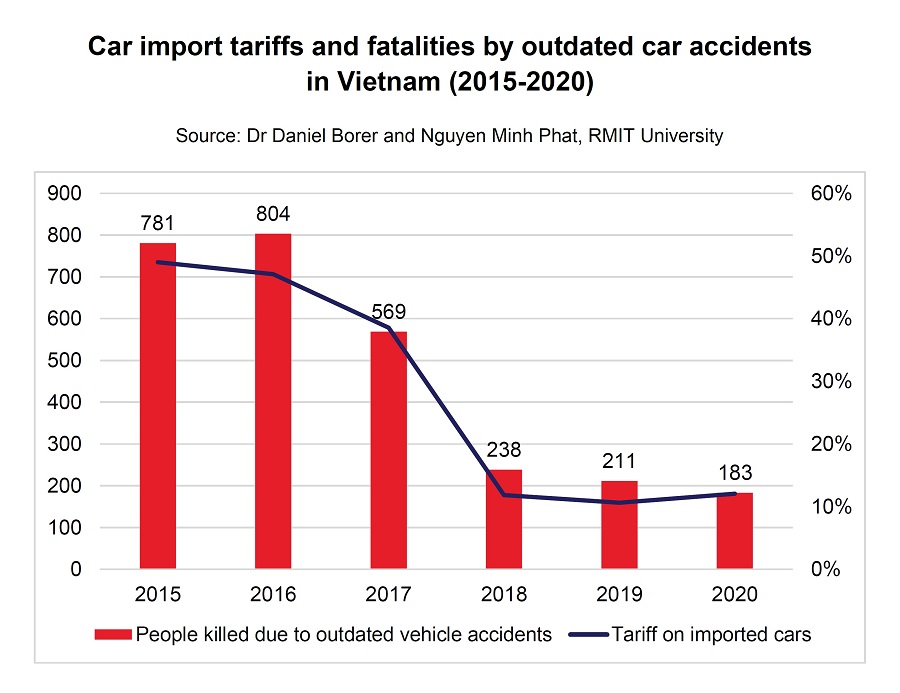After many months of lockdown, finally some normality has returned to our streets. With it, the heavy traffic and here and there, accidents. More accidents than before the lockdown, some even think. Most of the accidents are blamed on bad and reckless driving. This is true to some degree. But there is another, less obvious reason: tariffs on imported cars.
Modern cars boast of being not only more eco-friendly but also more comfortable and, most importantly, safer. Many of the cars sold today embed a great array of smart technology to help avoid accidents, such as facial recognition software to avoid falling asleep, tire pressure monitoring system, forward collision warning or lane departure warnings.
But all this smart technology is useless for those who cannot afford it.
Heavy tariffs on imported cars in Vietnam have made it hard to purchase the newest and safest cars on the market. As tariffs prevent citizens from affording modern cars, they will continue using old models with outdated safety features as long as they can, which represents a danger to everybody. Even if the driver drives responsibly, the vehicle might fail and cause an accident with a fatal outcome.
Most Vietnamese who cannot afford cars will rely on the cheaper alternative, the motorbike, which hardly makes our roads safer due to motorbikes’ lack of safety technology.
It is therefore no wonder that road accidents have long ranked as the number one cause of non-natural deaths in Vietnam besides diseases. In fact, traffic accidents are the top death reason for 15–29-year-olds in Vietnam according to a report by the OECD.
We can even put some numbers on how many people were indirectly killed on the road by tariffs. According to a worldwide study by Dr Daniel Borer in 2020, deaths by car accidents could be reduced by 7.5% if tariffs on imported cars are reduced by 10%.
Based on statistics from diverse sources including the General Department of Vietnam Customs and the Vietnamese Traffic Police Department, research from RMIT shows that there is a relation between how many people are potentially killed by traffic accidents involving outdated cars in Vietnam, and the tariff rates on imported cars (see the graph below).





